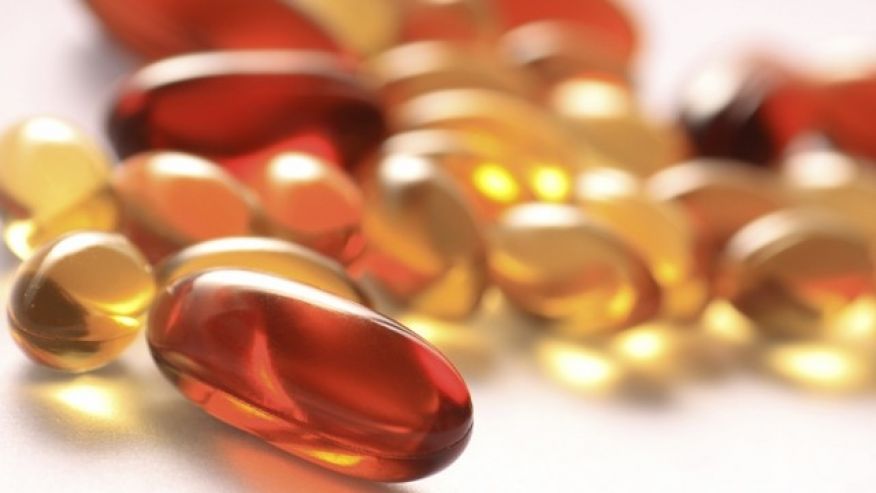Natural health: 4 Ways to boost your bone health
09/27/2022 / By Zoey Sky

Maintaining bone health is crucial for your well-being. To keep your bones healthy, consume more superfoods like turmeric, dandelion greens and thyme. Eating foods rich in magnesium, a bone-supporting nutrient, can also help.
Following a balanced diet and exercising regularly can help keep your bones healthy and protect against bone diseases like osteoporosis or bone fractures. Osteoporosis is a bone disease characterized by porous, brittle bones and low bone mass. This debilitating health problem currently affects 54 million Americans.
Since this age-related condition often shows no symptoms, many people do not know that they have it until a sudden bone fracture occurs. According to the Bone Health and Osteoporosis Foundation, at least one out of every two women aged 50 and older, and one in four men in the same age group, will suffer an osteoporosis-related fracture at some point in their lives.
Unfortunately, people with osteoporosis can experience broken bones from common activities like walking, standing or even sneezing.
To reduce your chance of suffering a severe fracture, experts recommend following a balanced diet and eating foods rich in calcium and vitamin D.
Curcumin from turmeric protects against fractures
Turmeric (Curcuma longa) is often used in traditional remedies because it can help reduce inflammation and protect against infections. Turmeric owes its antimicrobial, anti-inflammatory and antioxidant properties to curcumin, the spice’s main active compound.
Curcumin is believed to help improve low bone density.
A study conducted by researchers at the University of Arizona found that turmeric extract helps prevent the development of osteoclasts, the specialized cells that facilitate the breakdown of bone. It also helps protect the trabecular bone and hip bone most susceptible to fracture in postmenopausal women.
You can buy turmeric in powdered, tincture, liquid and capsule forms. If supplementing with turmeric to boost bone health, get a turmeric formulation standardized to contain at least 94 percent curcuminoids, which data suggests is more effective than lower concentrations.
If you are not used to taking turmeric, check with your integrative doctor first before incorporating it into your regular diet.
Dandelion greens contain nutrients that strengthen bone
Many gardeners despise dandelion (Taraxacum officinale) because it is a pesky weed, but this humble plant offers many health benefits.
Nutritionists from the Cleveland Clinic even consider dandelion leaves as “probably the most nutritionally dense green you can eat, superior to even spinach and kale.”
Dandelion greens are full of bone-building nutrients like vitamin K, calcium and potassium. These greens are also full of silicon, which has been found to improve bone matrix quality and facilitate bone mineralization.
Not sure how to use or eat dandelion? Here are some tasty suggestions:
- Add dandelion greens to mixed salads and sandwiches. For a milder taste, soak the greens in cold, salted water for 10 minutes, then boil for at least five minutes. Season with olive oil, garlic and Parmesan cheese.
- Serve steamed dandelion greens as a side dish. Steam with garlic for a flavor boost.
- Make a “green pizza” topped with dandelion leaves.
- Serve dandelion quesadillas with cheese.
- Whip up a tasty dandelion and potato salad.
- Make some dandelion greens and pumpkin seed pesto.
You can also take dandelion supplements, but check with a natural health practitioner first if you aren’t used to taking them.
Magnesium supports bone health
Multiple studies suggest that magnesium contributes to increased bone density and helps prevent the development of osteoporosis.
However, many adults in the U.S. don’t get enough magnesium from their diets. According to the Office of Dietary Supplements, only 48 percent of Americans get enough magnesium from foods to meet the estimated average requirement.
Boost your dietary intake of magnesium by eating more green leafy vegetables, nuts, seeds and whole grains. Pumpkin seeds are a great source of magnesium and one ounce of roasted seeds contains about 156 mg of the nutrient.
Other good sources of magnesium include beans, chia seeds, potatoes and fresh (raw) yogurt.
The recommended daily dietary amount for magnesium for adults is 420 mg for men and 320 mg for women. Another option is to take magnesium supplements. (Related: Maintain eye and bone health with vitamins A and D (recipe included).)
Thyme helps manage calcium levels and supports bone health
Thyme (Thymus vulgaris) is a popular seasoning, but this herb is a superfood that is also used in traditional medicine to treat different health complaints.
Thyme contains micronutrients that promote bone health like calcium, magnesium, manganese, zinc and vitamin K.
Additionally, thyme’s active constituent thymol is believed to inhibit the formation of osteoclasts.
According to a study published in the International Journal of PharmTech Research, taking 1,000 mg of thyme a day for six months improved bone mineral density in postmenopausal women more effectively than a calcium and vitamin D supplement. Thyme also helped regulate calcium homeostasis, suggesting the herb has a protective effect on bone.
In addition, research shows that thyme is even more effective in supporting bone mineral density when it is used together with its close “cousins” rosemary and sage.
Use thyme either fresh or dried when cooking. You can also use it in liquid extract and capsule form. Consult your integrative doctor before supplementing.
Follow a balanced diet that includes nutritious vegetables like turmeric and dandelion greens to boost your bone health.
Watch the video below to learn about 11 ways to improve your bone density and overall well-being.
This video is from the Natural News channel on Brighteon.com.
More related stories:
Eating probiotic foods helps improve bone health in women.
Prevent osteoporosis and boost bone health with vitamin E.
Osteoporosis myths DEBUNKED: Truths about bone health.
Sources include:
Submit a correction >>
Tagged Under:
alternative medicine, bone health, curcumin, Dandelion, food is medicine, functional foods, herbal medicine, Herbs, Magnesium, natural medicine, nutrients, organics, phytonutrients, prevention, supplements, thyme, turmeric, veggie
This article may contain statements that reflect the opinion of the author
RECENT NEWS & ARTICLES
COPYRIGHT © 2017 PHYTONUTRIENTS NEWS




















